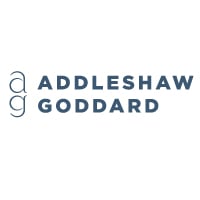

Legal Director and Compliance Officer for Western Europe | Colgate-Palmolive



Barbara Naouri
Legal Director and Compliance Officer for Western Europe | Colgate-Palmolive
How do you approach managing legal aspects during periods of instability or crises, and how does your legal strategy align with the broader business strategy to ensure the organisation’s resilience?
During periods of instability or crisis, our legal approach centres on several key elements.
Firstly, proactive risk management is essential. We assess potential legal risks early and implement mitigation strategies. This includes ensuring compliance with rapidly evolving regulations and reviewing possible liabilities in crucial areas such as supply chain disruptions, labour laws, and consumer protection. By identifying vulnerabilities in advance, we can prevent or minimise risks before they develop into larger issues.
Secondly, contingency planning and adaptability are central to our approach. Colgate-Palmolive has established protocols to respond to crises and adapt to new legal landscapes. Whether we encounter regulatory changes, litigation, or unforeseen events – such as economic downturns or pandemics – the legal team collaborates closely with other departments. This collaboration includes renegotiating contract clauses, managing workforce adjustments, or addressing governmental actions and lobbying on issues affecting operations. Legal flexibility is particularly critical during these times, enabling us to modify policies and maintain operational fluidity.
Business continuity and compliance are also vital. Ensuring that operations remain aligned with changing laws, particularly in highly regulated sectors (e.g., biocides), is key to reducing exposure to fines, sanctions, or reputational damage.
Additionally, alignment with business strategy is fundamental. Legal strategies are closely tailored to support the company’s broader business objectives. For example, if expanding into new markets during a crisis is the goal, we ensure that all local compliance, regulatory concerns, and IP issues are managed effectively. Similarly, if strengthening supply chain resilience is prioritised, we provide legal frameworks for diversification or renegotiation with suppliers.
Lastly, clear communication is essential during periods of instability. We prioritise keeping all stakeholders informed on legal requirements, risks, and strategies through practical advisories, ensuring the company can act cohesively and minimise misunderstandings or errors in crisis situations.
In summary, our legal strategy in times of instability is designed to be prepared, adaptable, and closely aligned with the broader business strategy, helping the company to remain resilient, compliant, and positioned for recovery and growth.
What measures has your company taken to embed sustainability practices into its core business operations, and how does the role of the general counsel contribute to driving and ensuring sustainable practices within the company?
At Colgate-Palmolive, sustainability is more than just a goal – it is a core element of our operations. We have made substantial progress in embedding sustainable practices into our business through several key initiatives.
Firstly, we pioneered the development of recyclable toothpaste tubes and made this technology freely available to other companies to encourage a global shift towards recyclable tubes. Our vision extends beyond our own products; we aim for all tubes, not only toothpaste, to be recycled at scale.
Secondly, Colgate-Palmolive is committed to using only recycled and recyclable plastics in its packaging, contributing to the circular economy and reducing waste. This commitment is also evident in our zero-waste certification for factories, which ensures waste minimisation throughout our production processes.
Lastly, we actively engage on sustainability issues at both industry and governmental levels. This holistic approach is central to our business strategy.
The General Counsel plays a pivotal role in advancing these sustainability practices, particularly by ensuring that our marketing claims regarding these initiatives are compliant with evolving regulations, including those at the EU level, such as the Green Deal. This is particularly important in markets such as France and the Netherlands, where sustainability claims are closely regulated. Our Legal Team also monitors compliance with standards like the CSRD, helping to prevent misleading claims and defending the company’s interests where necessary. To ensure alignment across the company, Legal provides practical training on sustainability regulations, equipping all teams to act responsibly. Furthermore, the General Counsel supports internal sustainability efforts, organising activities such as office cleaning days to reinforce our commitment to sustainable practices within our workplace culture, as well as in our operations.
What emerging technologies do you see as having the most significant impact on the legal profession in the near future, and how do you stay updated on these developments?
Emerging technologies, particularly AI, are driving significant changes within our legal department, transforming how we operate and deliver services. Key AI-driven tools are reshaping our legal processes in the following ways.
Firstly, we have implemented AI-based chatbots to handle routine legal inquiries, providing business partners with instant, reliable responses. This innovation streamlines legal support, reduces response times, and enables our legal team to focus on more complex issues.
In addition, AI-powered legal research tools allow our team to search and analyse case law with increased speed and accuracy. These tools help us identify relevant precedents and trends, enabling more informed legal advice and keeping us ahead of regulatory developments and litigation risks.
Regulatory compliance with AI-related legislation, such as the IA Act, is also a priority. We actively monitor regulatory changes and have, for instance, introduced a registration system that tracks AI tools used within the company, ensuring transparency and compliance with data protection and ethical standards. Contracts with third parties also address AI-related risks to further support compliance.
Continuous learning is essential for staying ahead in this rapidly evolving field. Our Legal Team regularly participates in AI workshops and training sessions to foster innovation and remain informed about new AI advancements. We organise AI Hackathons and have appointed AI Ambassadors within the Legal Team to promote responsible AI use and ensure we remain at the forefront of AI developments.
By integrating AI, our legal department boosts efficiency and strengthens its role as a forward-thinking partner within the company.